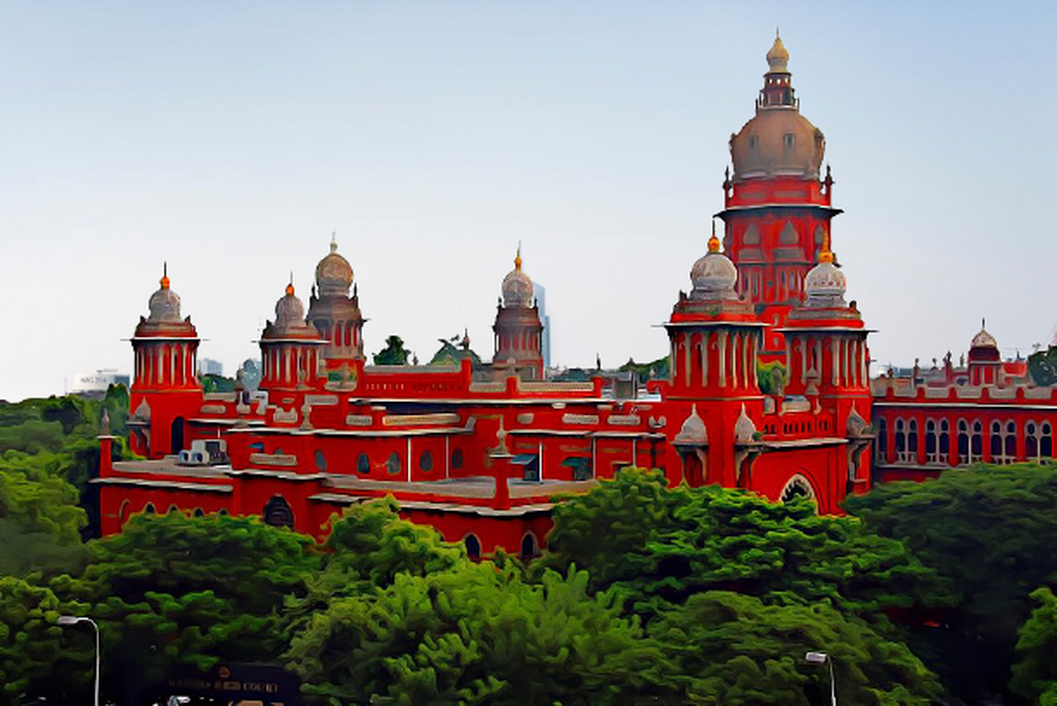In W.P.Nos.23369 and 25287 of 2021- MAD HC- Judicial review would not go against policy decision taken by Government, unless there is colourable exercise of power with rampant arbitrariness which explicitly strikes Court’s conscience: Madras HC Justice R. Suresh Kumar [14-05-2022]

Read Order: G. SENDRAYAN Vs. THE REGISTRAR OF COOPERATIVE SOCITIES AND ORS.
Mansimran Kaur
Chennai, May 18, 2022: While observing that the policy decision to cancel the project of State Level Co-operative Training Institute at Yercaud was taken by the Government in a Review Meeting, the Madras High Court has held such decision couldnot be said to be unlawful or arbitrary exercise of power.
The Bench of Justice R. Suresh Kumar said, “Insofar as taking a policy decision by the elected Government is concerned, the Law is well settled. Normally judicial review would not go against such policy decision, unless there is a colourable exercise with rampant arbitrariness, which is explicitly and shockingly strike the conscience of the Court. The aforesaid decision taken to cancel the establishment of the State Level Institute at Yercaud cannot be brought under the said category as referred to above. Therefore such a policy decision cannot be questioned before this Court by way of judicial review.”
Facts of this case were that the petitioner was elected as President of India Yercaud Lamp Co-operative Society. The cause of action arose when the first respondent recommended the formation of a State-Level Training Institute. Consequently, the Government allotted the land for establishment of the same. However, thereafter the first respondent (Registrar of Cooperative Societies) issued directions to stop the work of constructing the institute by an order. Then, the petitioner instituted a writ petition.
Thereafter, during the course of hearing, the Government produced a Government Order in G.O.(Ms).No.99 dated November 9, 2021, which was issued after termination of the said project. The petitioner challenged the same by way of writ of mandamus in order to call for the records with respect to the aforesaid order and prayed to quash the same. This chain of events brought the present writ petitions in the instant case before this Court.
The Court relied on the decision of the Apex Court in Union of India and Others vs. Kannadapara Sanghatanegala Okkuta & Kannadigara and Dr. G. Krishnamurthy v. Chief Secretary, Directorate of Film Festivals v. Gaurav Ashwin Jain. It was opined by the Court that though a legal/ political malafide has been alleged on behalf of the petitioner, those reasons either were not available in this case or couldnot be taken as a ground to interfere with the policy decision taken by the Government, as the requirement of the State is to be best decided only by the democratically elected Government.
Whether the State is requiring a State Level Institute or National Level Institute and such kind of Institute is to be located at A place or B place or C place is best to be decided only by the democratically elected Government and not by this Court, therefore, for this reason also, this Court did not want to interfere with the decision taken by the present Government, which was reflected in the impugned communication as well as the G.O.
It was stated that if the erstwhile or the previous Government has taken a decision for any project to be undertaken for the welfare of the people, for which heavy amount of Government exchequer has been already spent, while taking a review in respect of those decision, the successive Government must borne in mind that, such kind of huge spending from exchequer shall not be allowed to go a waste. It was also mentioned that merely because the earlier Government was from a different political dispensation and the present Government is of a different political dispensation, all decisions taken by the earlier Government need not be reviewed.
Thus, the present writ petitions assailing the order passed by the Registrar of Co- operative Societies were dismissed.
Sign up for our weekly newsletter to stay up to date on our product, events featured blog, special offer and all of the exciting things that take place here at Legitquest.




Add a Comment